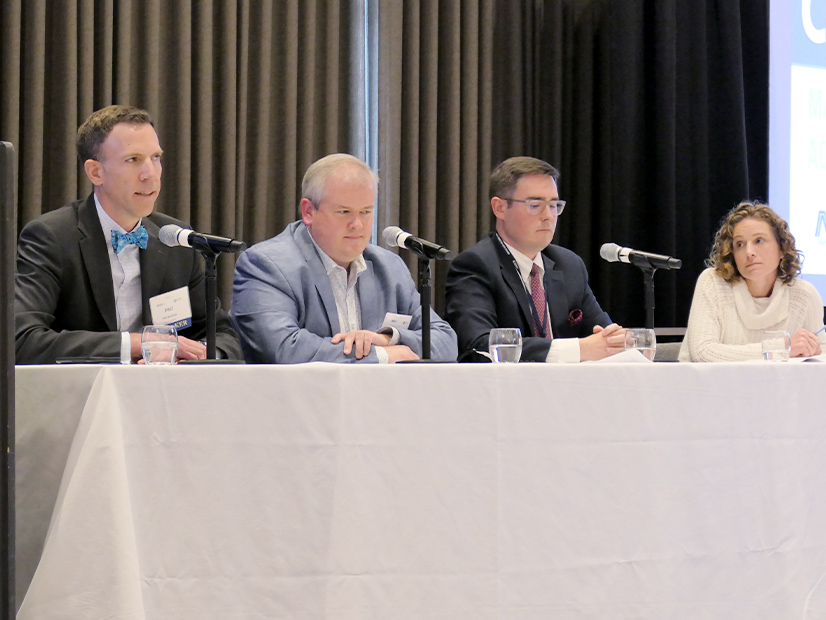
State utility regulators in New England are cautiously optimistic about the path forward to fixing the region’s energy markets.
Several utility commission leaders on Wednesday addressed the preliminary results of ISO-NE’s draft Pathways Study, which compares region-wide options to incentivize clean energy, including carbon pricing and a forward clean energy market (FCEM).
“We’ve said yes to the ISO to go on a date with them to fix the markets, but we still have to go on the date,” said Matthew Nelson, chair of the Massachusetts Department of Public Utilities. “It’s not over yet, so that’s where we are.”
Nelson and other regulators spoke on a panel at the New England Energy Conference and Exposition hosted by the Northeast Energy and Commerce Association and the Connecticut Power & Energy Society.
The study draft, commissioned by ISO-NE and written by the consulting firm Analysis Group, was released in March. It did not make any formative conclusions about the four policy approaches it weighs, aside from their theoretical ability to achieve “substantial” levels of decarbonization, but it offered insight into the tradeoffs that would come with each. (See Draft Study Weighs Tradeoffs of CO2 Pricing, FCEM for ISO-NE).
The New England States Committee on Energy put out a measured statement in which it reserved judgment on the study, saying the committee looks forward to working with the RTO and others to pick a pathway.
The states are interested in continuing to look at the development of a centralized FCEM, NESCOE said.
Maine Public Utilities Commission Chairman Philip Bartlett echoed NESCOE’s statement on Wednesday.
“I think there is broad agreement around the region about the potential benefits of a FCEM,” he said. “I think we all recognize if we continue to contract this aggressively, we’re going to effectively destroy the regional markets.”
As one of the other options under consideration for the region, a carbon tax is “economically attractive,” Bartlett said, but the policy carries with it challenges for garnering political support.
“I urge folks not to get ahead of where most of our states are politically, which is that a carbon fee of any kind is going to be extraordinarily hard to add into this market politically,” Bartlett said.
The panel addressed the need to develop a more cohesive system for attracting new clean energy resources than state power purchase agreements.
“Massachusetts needs a lot of clean energy to meet our growing load,” Nelson said. “And I think that is something that we say, ‘OK, we’re siting 20-year PPAs now, but is there a better way to do that?”
Policy makers like contracting, Bartlett said.
“It’s something where you can pass legislation, set clear parameters and then be able to point to or take credit for the generation that comes out of that,” he said. “The real work will be convincing policy makers to step back from contracting and let [markets] work.”
More discussion of the pathways study and next steps is expected at the New England Conference of Public Utilities Commissioners Symposium in Massachusetts next week.


